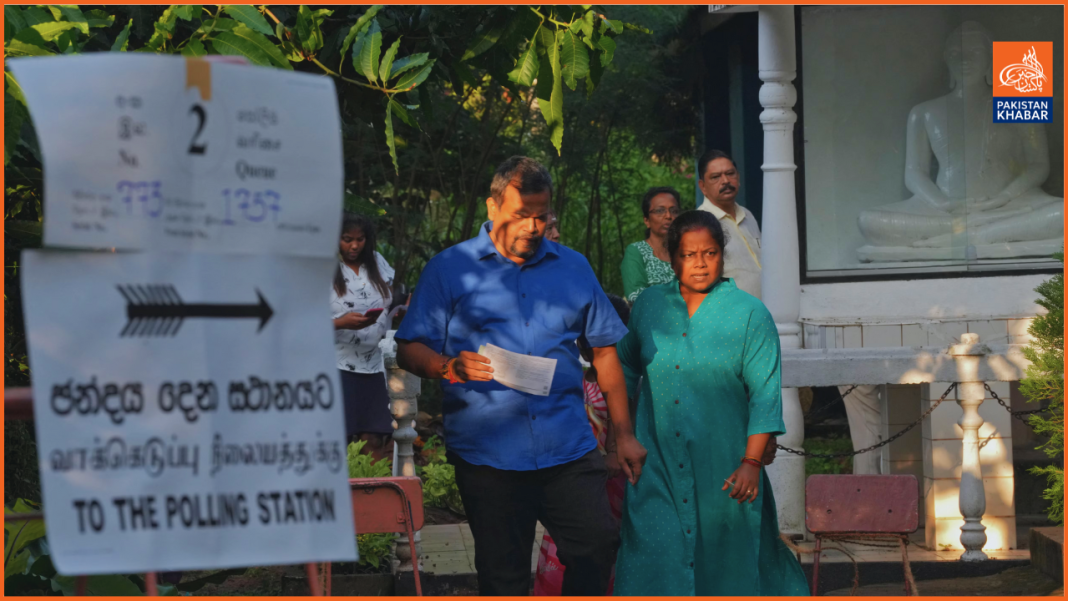Sri Lankans began voting on Thursday in a snap election to determine whether the new leftist president will gain the mandate needed to strengthen his efforts to aid the poor as the nation recovers from a financial crisis.
Over 17 million eligible voters are choosing lawmakers for the 225-member parliament, with a record 690 political parties and independent groups competing across 22 electoral districts.
“I believe we’re seeing the first signs of positive political change in Sri Lanka since the president was elected, and we should give him the chance to continue this change,” said Umeshi Perera, 32, who was among those waiting to vote in a Colombo suburb.
President Anura Kumara Dissanayake, a Marxist-leaning leader, was elected in September, but his National People’s Power (NPP) coalition holds only three of parliament’s 225 seats, prompting him to dissolve the legislature and seek a new mandate.
Voting proceeded smoothly, according to a police spokesman, after more than 7,000 officers were deployed to over 13,400 polling stations nationwide to ensure a fair election.
“The military is on standby to assist the police, but we do not anticipate any incidents,” said spokesman Nihal Thalduwa.
Voters began arriving at polling stations in temples, schools, and other public buildings as soon as polls opened. The votes will be counted shortly after polling closes on Thursday, with results expected by Friday.
Analysts suggest that Dissanayake’s coalition is likely to receive significant support, while a win by a rival could lead to a policy deadlock that Sri Lanka cannot afford.
A political outsider in a nation long dominated by family-run parties, Dissanayake advocates policies aimed at combating poverty, such as expanded welfare programs, while also tackling corruption.
Sri Lankans generally back their president in quick elections, especially when held soon after an election victory.
While the president holds executive power, Dissanayake needs a parliamentary majority to form a full cabinet and deliver on his key promises, including cutting taxes, supporting local businesses, and addressing poverty.
“This election is crucial for the NPP to secure the numbers needed for the IMF package and to push forward promised governance, constitutional, and economic reforms,” said Bhavani Fonseka, a researcher at Colombo’s Centre for Policy Alternatives.
The main challenge to Dissanayake’s coalition comes from the Samagi Jana Balawegaya party, led by opposition leader Sajith Premadasa, who favors a mix of interventionist and free-market policies.
Also in contention is the New Democratic Front, supported by former President Ranil Wickremesinghe.
Economic Recovery Sri Lanka, with a population of 22 million, was hit hard by an economic crisis in 2022 triggered by a severe shortage of foreign currency, which led to a 7.3% contraction in the economy in 2022, followed by a 2.3% decline last year.
With a $2.9 billion bailout from the International Monetary Fund (IMF), the economy is beginning to recover, but the high cost of living remains a major concern for many voters, particularly the poor.
Dissanayake also aims to adjust the IMF’s targets, particularly to lower income taxes and free up funds for welfare programs benefiting those hardest hit by the crisis.
However, investors worry that his desire to revisit the IMF bailout terms could delay future disbursements, making it more difficult for Sri Lanka to meet a key IMF target of a 2.3% primary surplus of GDP by 2025.
“In past elections, people didn’t have confidence in us, but in September, people showed their trust by voting for us, proving that we are a winning party and can form a government,” Dissanayake said on Sunday at the end of campaigning.
“The next step is to unite people from all corners of this country and build a powerful movement for the people.”




